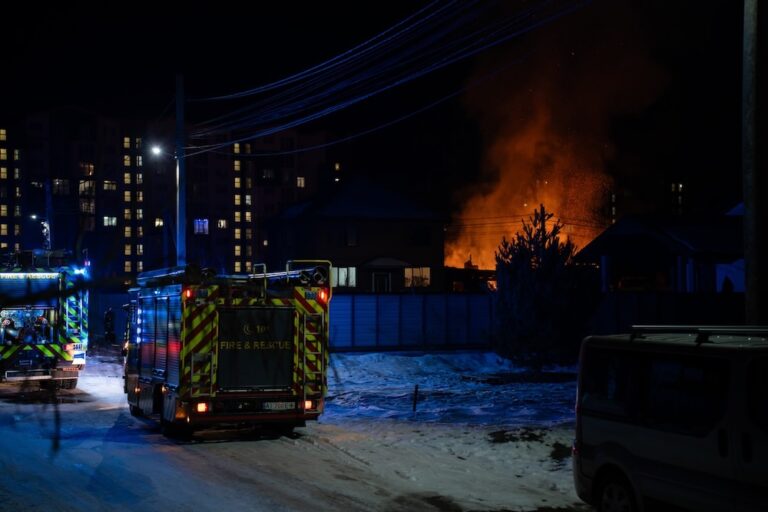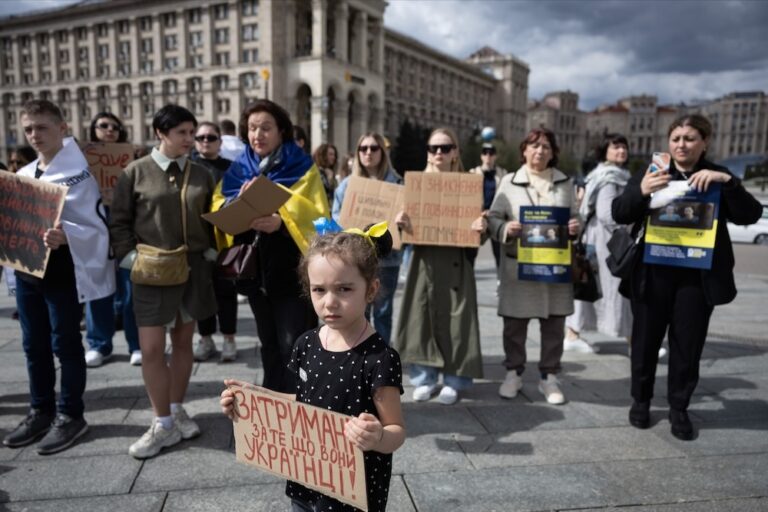Dominance of the news media is only one of the cogs in a much larger apparatus of information control constructed by the Kremlin. Over the past few years, the Russian government has refined an array of restrictive mechanisms that have given it immense power in shaping the information landscape.
This statement was originally published on freedomhouse.org on 25 November 2014.
By Elen Aghekyan
Research Assistant, Freedom in the World and Freedom of the Press
Control of the media is a standard instrument in the toolbox of authoritarian rule, and considerable research has underscored the correlation between media freedom and democracy. Countries with strong, well-functioning democratic institutions tend to have media that are free, independent, and pluralistic, while authoritarian states tend to have fairly closed media spaces. Moreover, a country’s level of media freedom is a highly responsive indicator in times of change, often serving as a litmus test for the overall health of a political system.
Russia has emerged as a major example of this relationship. Over the last 15 years, as the country’s democratic institutions have deteriorated, its media sector has increasingly suffered from government intervention, state-sanctioned propaganda, and monopolistic ownership.
However, dominance of the news media is only one of the cogs in a much larger apparatus of information control constructed by the Kremlin. Over the past few years, the Russian government has refined an array of restrictive mechanisms that have given it immense power in shaping the information landscape.
The recent overhaul of public school textbooks, which included assessments of such vague criteria as “ethno-cultural” value, is one of the most concerning developments on this front. In a perfect storm of ideology and corruption, the government orchestrated a takeover of the Russian textbook industry by a publishing house chaired by Arkady Rotenberg, a close associate of President Vladimir Putin. Alongside the new government-controlled review process for textbooks, this maneuver has given the Kremlin a much tighter grip on the material through which Russian schoolchildren will learn about the world.
A segment of the higher education system is also at risk after a politically motivated overhaul. Less than three months after the June 2013 announcement of plans to reorganize the Russian Academy of Sciences (RAS), Russia’s parliament pushed through the relevant legislation, priming the 300-year-old institution for a thorough reconstruction. The RAS forfeited oversight of its component institutions to the newly established Federal Agency for Scientific Organizations, which also gained control of the academy’s assets and extensive real-estate portfolio. An adjacent federal body created by presidential decree, the Russian Scientific Fund, now controls the disbursement of research funds, and the director of its 15-member board is appointed by the president.
Earlier this month, the Boris Yeltsin Presidential Library announced plans to launch an online encyclopedia to counter Wikipedia, having found the online resource’s coverage of Russia and its regions to be inadequate. Although the new project has been presented as an alternative to Wikipedia, it will in fact be a polar opposite. The crowd-sourced Wikipedia relies on private individuals for its content, but the presidential library’s creation will only invite individuals to submit existing publications, which will be collected and curated by the staff of the Yeltsin library, the National Library of Russia, and the Russian Library Association—all three of which are state bodies.
The theme of creating “alternative” sources is recurrent in the Kremlin’s information control repertoire, implying greater plurality and freedom of information while actually moving in the opposite direction. Sputnik, the newly launched state news agency, was introduced this month as an alternative to “aggressive propaganda,” “offering a fuller picture of the world” and “telling the untold.” In practice, its narratives have hardly been “untold,” largely mirroring the content of other state-owned Russian outlets.
With the launch of Sputnik, the Kremlin has added an international dimension to its strategy. The agency’s radio service, which will begin operations in 2015 in more than 34 languages and 30 countries, is meant to target foreign audiences with locally produced content, rather than relying on broadcasts produced in Moscow. The majority of the 34 languages pertain to countries of the former Soviet Union and Eastern Europe, many of which have complex geopolitical relationships with Russia. Sputnik’s online news service is already available in English, Spanish, Chinese, and Arabic, languages that account for more than 30 percent of the global population.
On the domestic front, the Kremlin has reinforced its digital dominance by coupling censorship of online content with intrusive access to user information. Earlier measures—for example, empowering the Federal Service for Supervision of Communications, Information Technology, and Mass Media to block websites nearly at will—gave the government control over the content available to users. Today, such measures are accompanied by government monitoring of how individuals interact with this content. The infamous law that took effect in August, requiring sites that receive more than 3,000 daily visitors to register as mass media, included provisions obliging social-networking sites to retain user information for six months.
In July, Putin signed a law requiring internet firms—including social networks, retailers, banks, and companies like Google and Visa—to keep information on Russian citizens only on servers located in Russia. Government backers of the legislation claim that it will protect Russian citizens from foreign threats and spying—a reference to the United States, where most servers holding Russians’ user data are located. What lawmakers have failed to mention is that the rule will leave citizens vulnerable to domestic spying, as the Russian government has broad authority to access data stored on servers within Russia. The parliament in September proposed setting an accelerated compliance deadline of January 2015, which companies have deemed impossible to meet. Non-compliance, according to the law, is grounds for the government to block a company’s website.
In each of these maneuvers, the underlying objective amounts to curbing the free flow of information, one of the most basic components of democratic societies. As the restrictions amass and the reach of the government expands, the public sphere becomes less open and the private sphere becomes less private. With the Kremlin also diversifying its methods of societal control, there is little doubt that this trend signals a similarly grave decline in Russia’s general level of political freedom.
Analyses and recommendations offered by the authors do not necessarily reflect those of Freedom House.


